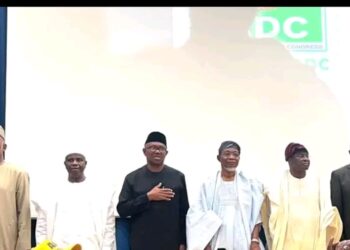The Speaker of the Green Chamber (HoR), Rt. Hon. Abbas Tajudeen has withdrawn a bill proposing compulsory voting for all eligible Nigerians.
The bill, aimed at amending the Electoral Act 2022, was co-sponsored with Hon. Daniel Asama Ago, intending to address declining voter turnout and strengthen democratic participation.
The Speaker’s decision followed broad consultations with stakeholders, including civil society organizations, legal experts, and members of the public.
In a statement issued on Monday by his Special Adviser on Media and Publicity, Musa Abdullahi Krishi, the Speaker acknowledged that while the bill was introduced in good faith, its implementation may not align with prevailing public sentiment.
“The intention was never to impose, but to encourage a stronger democratic culture. After listening to the voices of Nigerians across different platforms, it became clear that such a step requires deeper reflection and consensus,” speaker Abbas stated.
The bill cited examples from countries such as Australia, Belgium, Brazil, Argentina, and Singapore, where compulsory voting laws have resulted in turnout rates consistently above 80 percent. Supporters of the bill argued that Nigeria, facing increasing voter apathy, needed bold reforms to revitalize public participation in elections.
However, several civil rights advocates and political analysts expressed concern that mandatory voting could infringe on personal freedoms and be difficult to enforce in a diverse and complex society like Nigeria.
Speaker Abbas maintained that his commitment to democratic development remains firm. He announced that the House will now consider alternative strategies to encourage voluntary voter participation, including public education, electoral reforms, and improvements in voter access.
“We will continue to support efforts that make voting easier, safer, and more meaningful for every Nigerian. True democracy thrives not only when people have the right to vote, but also when they choose to do so willingly,” the speaker added.
The decision to withdraw the bill marks a significant shift in legislative direction, emphasizing consensus over compulsion. It also underscores the growing influence of civic feedback on the National Assembly’s legislative agenda.
Political observers view the development as an opportunity to explore more sustainable methods of enhancing electoral participation. Suggestions include improved logistics, timely distribution of voter materials, stronger institutional trust, and better engagement with young voters.
With the bill off the table, attention now turns to how the House of Representatives and other stakeholders will work to rebuild public confidence in the electoral process ahead of future polls.




